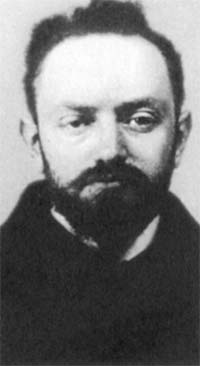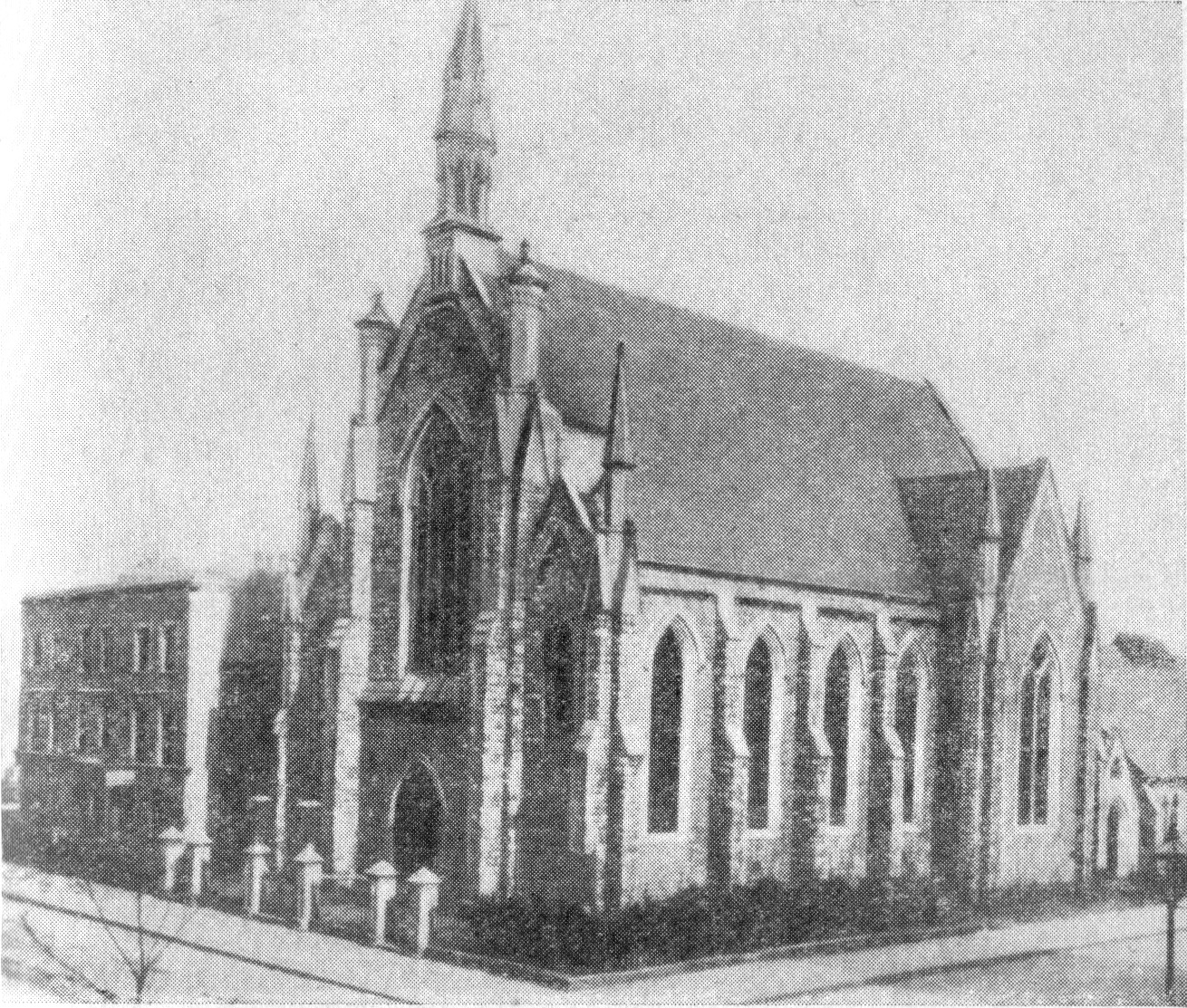|
Yakov Ganetsky
Yakov Hanecki (known in Russia as Yakov Stanislavovich Ganetsky - Яков Станиславович Ганецкий), real name Jakub Fürstenberg (Fuerstenberg) also known as Kuba (15 March 1879 — 26 November 1937) was a prominent Polish communist and close associate of Vladimir Lenin,russian: Залесский К.А. Империя Сталина. Биографический энциклопедический словарь. Москва, Вече, 2000 (Zalesskiy K.A. Stalin's Empire. Biographical encyclopedic dictionary. Moscow, Meeting, 2000) famous as one of the financial wizards who arranged, through his close working relationship with Alexander Parvus, the secret German funding that helped the Bolsheviks seize power in the October Revolution of 1917 - after which he served as a middle ranking Soviet official until his arrest. Early career Yakov Hanecki was born in Warsaw, Vistula Land, Russian Empire, the son of Stanislav von Fürstenberg, a beer manufacturer of Germa ... [...More Info...] [...Related Items...] OR: [Wikipedia] [Google] [Baidu] |
Russian Social Democratic Labour Party
The Russian Social Democratic Labour Party (RSDLP; in , ''Rossiyskaya sotsial-demokraticheskaya rabochaya partiya (RSDRP)''), also known as the Russian Social Democratic Workers' Party or the Russian Social Democratic Party, was a socialist political party founded in 1898 in Minsk (then in Northwestern Krai of the Russian Empire, present-day Belarus). Formed to unite the various revolutionary organizations of the Russian Empire into one party, the RSDLP split in 1903 into Bolsheviks ("majority") and Mensheviks ("minority") factions, with the Bolshevik faction eventually becoming the Communist Party of the Soviet Union. History Origins and early activities The RSDLP was not the first Russian Marxist group; the Emancipation of Labour group had been formed in 1883. The RSDLP was created to oppose the revolutionary populism of the Narodniks, which was later represented by the Socialist Revolutionary Party (SRs). The RSLDP was formed at an underground conference in Minsk in ... [...More Info...] [...Related Items...] OR: [Wikipedia] [Google] [Baidu] |
Grigory Zinoviev
Grigory Yevseyevich Zinoviev, . Transliterated ''Grigorii Evseevich Zinov'ev'' according to the Library of Congress system. (born Hirsch Apfelbaum, – 25 August 1936), known also under the name Ovsei-Gershon Aronovich Radomyslsky (russian: Овсей-Гершен Аронович Радомысльски, links=no), was a Soviet Union, Soviet revolutionary and politician. He was an Old Bolshevik and a close associate of Vladimir Lenin. During the 1920s, Zinoviev was one of the most influential figures in the Soviet leadership and the chairman of the Communist International. Born in Ukraine to a Jewish family, Zinoviev began revolutionary activities by joining the underground Russian Social Democratic Labour Party (RSDLP) in 1901. In 1903 the RSDLP split between the Mensheviks, Menshevik faction led by Julius Martov and the Bolsheviks led by Vladimir Lenin. Zinoviev joined Lenin's faction and in doing so he became one of the original Bolsheviks. As a Bolshevik, Zinoviev engaged i ... [...More Info...] [...Related Items...] OR: [Wikipedia] [Google] [Baidu] |
Julian Leszczyński
Julian Leszczyński (; 8 January 1889 in Płock – 20 August 1939), also known by pseudonym Leński, was a Polish communist political activist, publicist, and leader of the Stalinist faction in the Communist Party of Poland (KPP). He led the party in the 1930s, and himself fell victim to the Great Purge. Life and career Leszczyński was born in to a working-class family. Brought up in the Russian-occupied sector of Poland, Lenski was arrested and expelled from school for leading a student strike during the 1905 Russian Revolution, and in that same year joined the Social Democracy of the Kingdom of Poland and Lithuania (SPDKiL) in Warsaw. In 1909-12, he studied philosophy at Kraków university, after which he lived illegally, working as a full time party organiser. When the SDPKiL split, he supported the ''rozlamovist'' opposition, led by Jacob Hanecki and Karl Radek, who were closer to the Bolsheviks than the old SDPKiL leaders, Rosa Luxemburg and Leo Jogiches. He represented ... [...More Info...] [...Related Items...] OR: [Wikipedia] [Google] [Baidu] |
Henryk Domski
Henryk Stein-Domski (real name: Stein; pseud Kamiensky) (5 September 1883 – 26 October 1937) was a Polish communist politician and activist, who led the Communist Party of Poland in 1925, before being ousted and repressed as a suspected Trotskyist. Career Domski was born into a middle class Jewish family in Warsaw, the son of a commercial agent. He never used the family name 'Stein' during years as a political activist. He joined the Social Democracy of the Kingdom of Poland and Lithuania (SDKPiL), led by Rosa Luxemburg and Jan Tyszka. in Warsaw, in July 1904. In 1905-06, he ran the party organisation in the Praga district of Warsaw. Arrested twice in 1906, he was interned in the Warsaw Citadel, until Match 1907. After his release, he moved to Lodz, but was rearrested and exiled to Chelyabinsk, in Siberia. He escaped after four months. In 1908-1915, he lived in exile in Paris, Zurich, Cracow and Berlin. In 1911, Domski supported the rozlamovist, group, led by Yakov Hanecki ... [...More Info...] [...Related Items...] OR: [Wikipedia] [Google] [Baidu] |
Communist Party Of Poland
The interwar Communist Party of Poland ( pl, Komunistyczna Partia Polski, KPP) was a communist party active in Poland during the Second Polish Republic. It resulted from a December 1918 merger of the Social Democracy of the Kingdom of Poland and Lithuania (SDKPiL) and the Polish Socialist Party – Left (PPS – Left) into the Communist Workers' Party of Poland (''Komunistyczna Partia Robotnicza Polski'', KPRP). The communists were a small force in Polish politics. The Communist Party of Poland (until 1925 the Communist Workers' Party of Poland) was an organization of the radical Left. Following the ideas of Rosa Luxemburg, the party's aim was to create a Polish Socialist Republic, to be included in the planned Pan-European Commonwealth of Socialist States. The party did not support the formation of the Second Polish Republic in 1918 and supported the Bolsheviks (led by Vladimir Lenin) in the 1920 Polish–Soviet War. The views adhered to and promulgated by the leaders of the ... [...More Info...] [...Related Items...] OR: [Wikipedia] [Google] [Baidu] |
Yakov Doletsky
Yakov Genrikhovich Doletsky (in Polish: Dolecki; real name Fenigstein ) (in Russian: Яков Генрихович Долецкий; real name Фенигштейн; 1888 – 19 June 1937) was a Polish revolutionary and long-serving head of the Soviet news agency TASS. Career Doletsky was born in Warsaw in 1888. In 1904, at the age of sixteen, Doletsky joined the Social Democracy of the Kingdom of Poland and Lithuania (SDKPiL), a party led by Rosa Luxemburg and Jan Tyszka. He was soon arrested and imprisoned. After his release, he worked for the SDKPiL abroad, then returned to Poland to operate illegally in Warsaw and Lodz. In 1912, he supported the 'rozlamovist' group within the party who opposed Tyszka's leadership style and who were allied with Vladimir Lenin and the Bolsheviks. He represented the group at the abortive 'unification' conference in Brussels in July 1914, which was supposed to reunite the separate factions of the Russian Social Democratic Labour Party and the S ... [...More Info...] [...Related Items...] OR: [Wikipedia] [Google] [Baidu] |
Josef Unshlicht , a Japanese manufacturer of musical instruments
{{disambiguation ...
Josef may refer to *Josef (given name) *Josef (surname) * ''Josef'' (film), a 2011 Croatian war film *Musik Josef Musik Josef is a Japanese manufacturer of musical instruments. It was founded by Yukio Nakamura, and is the only company in Japan specializing in producing oboe The oboe ( ) is a type of double reed woodwind instrument. Oboes are usually ma ... [...More Info...] [...Related Items...] OR: [Wikipedia] [Google] [Baidu] |
Karl Radek
Karl Berngardovich Radek (russian: Карл Бернгардович Радек; 31 October 1885 – 19 May 1939) was a Russian revolutionary and a Marxist active in the Polish and German social democratic movements before World War I and a Communist International leader in the Soviet Union after the Russian Revolution. Early life Radek was born in Lemberg, Austria-Hungary (now Lviv in Ukraine), as Karol Sobelsohn, to a Litvak (Lithuanian Jewish) family; his father, Bernhard, worked in the post office and died whilst Karl was young. He took the name ''Radek'' from a favourite character, ''Andrzej Radek'', in '' Syzyfowe prace'' ('The Labors of Sisyphus', 1897) by Stefan Żeromski. Radek joined the Social Democracy of the Kingdom of Poland and Lithuania (SDKPiL) in 1904 and participated in the 1905 Revolution in Warsaw, where he had responsibility for the party's newspaper ''Czerwony Sztandar''. Germany and "the Radek Affair" In 1907, after his arrest in Poland and his es ... [...More Info...] [...Related Items...] OR: [Wikipedia] [Google] [Baidu] |
5th Congress Of The Russian Social Democratic Labour Party
The 5th Congress of the Russian Social Democratic Labour Party was held in London between May 13 and June 1, 1907. The 5th Congress had the largest attendance of the Congresses of the unified RSDLP.Thatcher, Ian D. Trotsky'. Routledge Historical Biographies. London: Routledge, 2003. p. 49 Thirty-five sessions of the Congress were held in the Brotherhood Church in Hackney, during which stormy debates took place. Service, Robert. Stalin: A Biography'. Cambridge, Massachusetts: Belknap Press of Harvard University Press, 2005. p. 65 Delegations 338 delegates attended the Congress. There were: * 105 Bolshevik delegates, representing 33,000 members * 97 Menshevik delegates representing 43,000 members * 59 Bundist delegates representing 33,000 members * 44 Polish Social Democrat (SDKPiL) delegates, representing 28,000 members * 29 Latvian Social Democrat delegates, representing 13,000 members * 4 'non-faction' delegates 300 of the delegates had voting rights.Minczeles, Henri. ''His ... [...More Info...] [...Related Items...] OR: [Wikipedia] [Google] [Baidu] |
4th Congress Of The Russian Social Democratic Labour Party
The Fourth (Unity) Congress of the Russian Social Democratic Labour Party that took place in (old) Folkets hus, Stockholm, Sweden, from 10-25 April (23 April to 8 May), 1906. The Congress was attended by 112 delegates with the right to vote, who represented 57 local Party organisations and 22 delegates with voice but no vote. Other participants were delegates from various national Social-Democratic parties: three each from the Social-Democrats of Poland and Lithuania, the Bund and the Lettish Social Democratic Labour Party, one each from the Ukrainian Social-Democratic Labour Party and the Finnish Labour Party, and also a representative of the Social Democratic Labour Party of Bulgaria. Among the Bolshevik delegates were Vladimir Lenin, Alexander Bogdanov, Leonid Krassin, Mikhail Frunze, Mikhail Kalinin, Nadezhda Konstantinovna Krupskaya, Anatoly Lunacharsky, Fyodor Sergeyev (Artyom), S. G. Shaumyan, Ivan Skvortsov-Stepanov, Joseph Stalin, Kliment Voroshilov, Maxim Litvinov ... [...More Info...] [...Related Items...] OR: [Wikipedia] [Google] [Baidu] |
Felix Dzerzhinsky
Felix Edmundovich Dzerzhinsky ( pl, Feliks Dzierżyński ; russian: Фе́ликс Эдму́ндович Дзержи́нский; – 20 July 1926), nicknamed "Iron Felix", was a Bolshevik revolutionary and official, born into Poland, Polish nobility. From 1917 until his death in 1926, Dzerzhinsky led the first two Soviet National Security, state-security organizations, the Cheka and the OGPU, establishing a Chronology of Soviet secret police agencies, secret police for the Russian Revolution, post-revolutionary Sovnarkom, Soviet regime. He was one of the architects of the Red Terror and decossackization. Early life Felix Dzerzhinsky was born on 11 September 1877 to ethnically Poles, Polish parents of noble descent, at the Dzerzhinovo family estate, about from the small town of Ivyanets in the Minsk Governorate of the Russian Empire (now Belarus). In the Russian Empire, his family was of a type known as "Uradel, column-listed nobility" (russian: столбовое двор ... [...More Info...] [...Related Items...] OR: [Wikipedia] [Google] [Baidu] |






